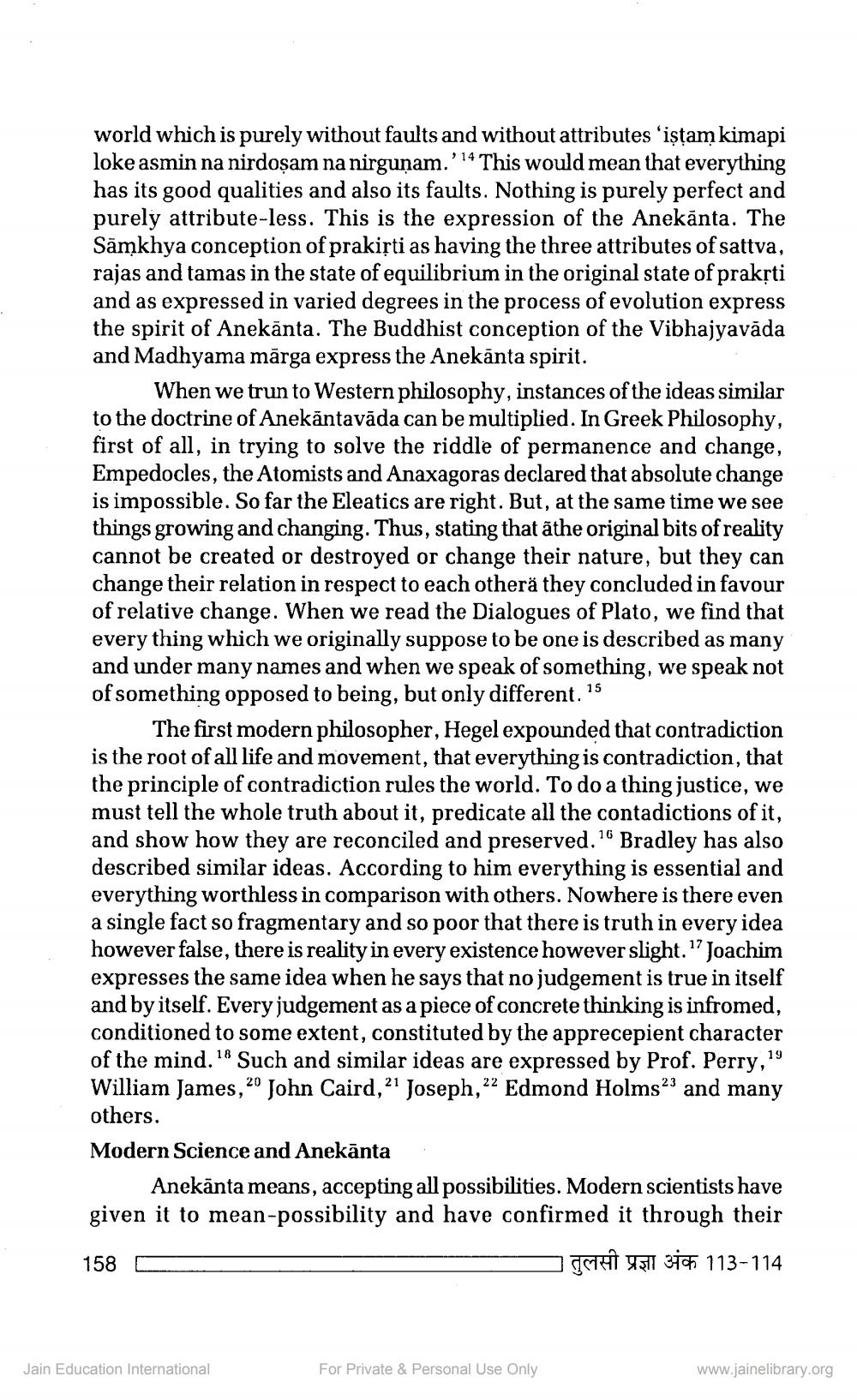________________
world which is purely without faults and without attributes 'iṣṭam kimapi loke asmin na nirdosam na nirgunam.'14 This would mean that everything has its good qualities and also its faults. Nothing is purely perfect and purely attribute-less. This is the expression of the Anekanta. The Samkhya conception of prakirti as having the three attributes of sattva, rajas and tamas in the state of equilibrium in the original state of prakṛti and as expressed in varied degrees in the process of evolution express the spirit of Anekanta. The Buddhist conception of the Vibhajyavāda and Madhyama märga express the Anekanta spirit.
When we trun to Western philosophy, instances of the ideas similar to the doctrine of Anekantavāda can be multiplied. In Greek Philosophy, first of all, in trying to solve the riddle of permanence and change, Empedocles, the Atomists and Anaxagoras declared that absolute change is impossible. So far the Eleatics are right. But, at the same time we see things growing and changing. Thus, stating that ãthe original bits of reality cannot be created or destroyed or change their nature, but they can change their relation in respect to each otherä they concluded in favour of relative change. When we read the Dialogues of Plato, we find that every thing which we originally suppose to be one is described as many and under many names and when we speak of something, we speak not of something opposed to being, but only different. 15
The first modern philosopher, Hegel expounded that contradiction is the root of all life and movement, that everything is contradiction, that the principle of contradiction rules the world. To do a thing justice, we must tell the whole truth about it, predicate all the contadictions of it, and show how they are reconciled and preserved. 16 Bradley has also described similar ideas. According to him everything is essential and everything worthless in comparison with others. Nowhere is there even a single fact so fragmentary and so poor that there is truth in every idea however false, there is reality in every existence however slight. 17 Joachim expresses the same idea when he says that no judgement is true in itself and by itself. Every judgement as a piece of concrete thinking is infromed, conditioned to some extent, constituted by the apprecepient character of the mind. 18 Such and similar ideas are expressed by Prof. Perry, 19 William James, 20 John Caird, 21 Joseph,22 Edmond Holms23 and many others.
17
Modern Science and Anekānta
Anekanta means, accepting all possibilities. Modern scientists have given it to mean-possibility and have confirmed it through their
तुलसी प्रज्ञा अंक 113-114
158
Jain Education International
For Private & Personal Use Only
www.jainelibrary.org




